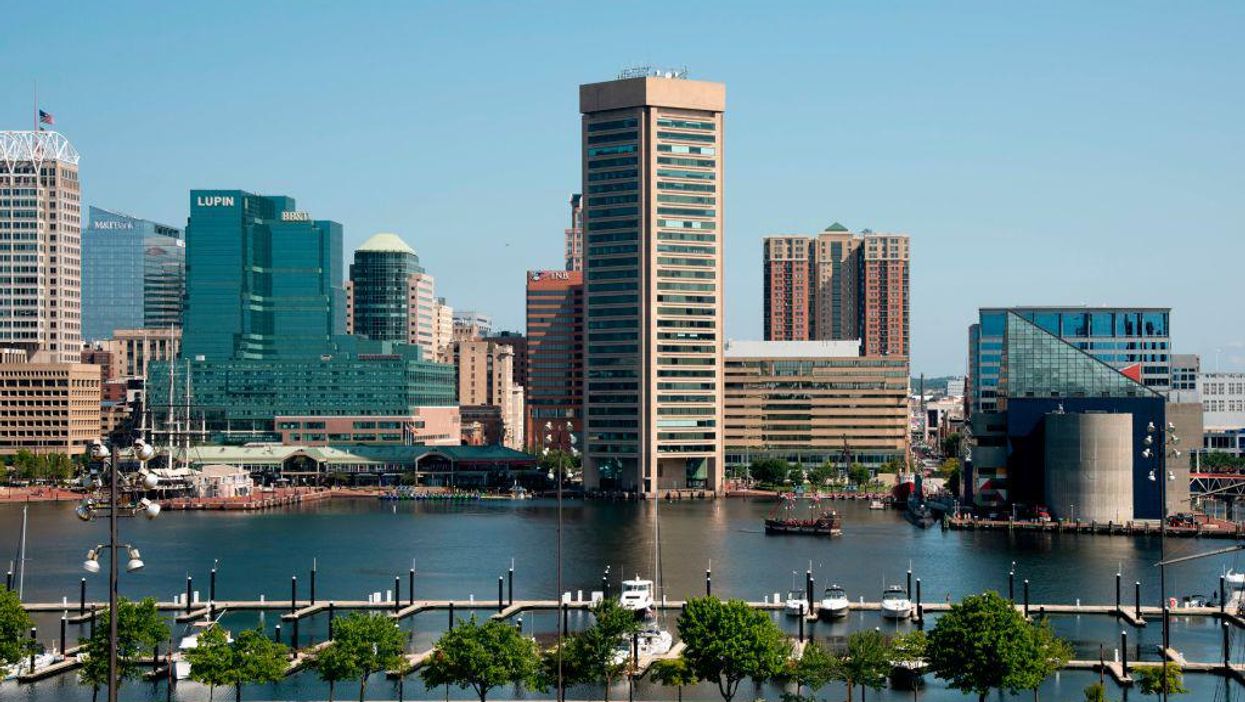
Robert Knopes/Education Images/Universal Images Group via Getty Images

A conservative Roman Catholic media outlet has won its case against the city of Baltimore after a federal judge ruled city officials could not ban the group from holding a prayer rally during a U.S. bishop's meeting next month.
U.S. District Judge Ellen Hollander granted on Tuesday a preliminary injunction against the city's decision to block St. Michael's Media Inc., which owns the website Church Militant, from hosting a prayer rally at a city-owned pavilion. Hollander said in her opinion that Church Militant was likely to win its case claiming the city violated the First Amendment by discriminating against the organization's political views.
"Plaintiff has demonstrated a substantial likelihood that it will prevail on the merits of its free speech (Count I) and assembly (Count IV) claims under the First and Fourteenth Amendments," the judge wrote in her order. "[T]he balance of the equities favors plaintiff; and an injunction is in the public interest."
The order says the Mayor and City Council of Baltimore "shall not prohibit or impede SMG [the pavilion's manager] from entering into a contract with St. Michael's for plaintiff's use of the MECU Pavilion for its planned rally on November 16, 2021."
A spokesman for the city of Baltimore told the Associated Press the city will appeal Hollander's decision.
"We are disappointed by the Court's decision and potential threat to public safety if this event ensues," the spokesman said. "The proposed rally is slated to take place on Baltimore City property, and we have a responsibility to protect our property and fellow citizens."
The city claimed that the gathering, which is advertised to feature speeches from former Donald Trump chief strategist Steve Bannon and former alt-Right provocatuer Milo Yiannopoulos, poses a threat to public safety. The city alleged that Church Militant supported the rioters who trespassed at the U.S. Capitol on Jan. 6 and said that Bannon and Yiannopoulos' speaking engagements "have a track record of inviting protesters and counter protesters ... their events and statements have a demonstrated history of inciting property destruction, physical assaults, and other violence."
Marc Randazza, the attorney for Church Militant, argued that the city "provided no factual basis or evidence that any violence might occur at Plaintiff's rally — and no support for the notion that Plaintiff would cause enough violence to disturb a poorly positioned wine glass, much less enough to warrant a suspension of the First Amendment."
In an 86-page opinion, Hollander agreed, writing, "The First Amendment to the Constitution is at the heart of this case."
"City Defendants invoked controversial, inflammatory speech by rally speakers, as well as plaintiff's alleged support of the attack on the Capitol, as grounds for cancellation of plaintiff's event," she wrote. "This is suggestive of viewpoint discrimination."
She noted in her opinion that the city's objection to the rally seems based on the "anticipated reaction" of counterprotesters, which she said amounts to a "heckler's veto."
"The City's invocation of a heckler's veto also raises serious concerns that its decision was motivated by viewpoint discrimination," she wrote. "The City cannot conjure up hypothetical hecklers and then grant them veto power."
She further called into question the city's claims about Church Militant and the Jan. 6 Capitol riot.
"The City never accuses St. Michael's of actual involvement in the events of January 6, 2021. Rather, it is critical of plaintiff for its coverage and support of the occurrence," Hollander wrote.
"In sum, the unbridled discretion exercised by the City; its use of the heckler's veto as an explicit justification; its shifting, post hoc rationalizations; and the City's invocation of political rhetoric by rally organizers and speakers point to the conclusion that plaintiff is likely to succeed on the claim that the City engaged in viewpoint discrimination with respect to plaintiff's political views," she concluded.
Reacting to the judge's opinion, Randazza said, "The City's hostility toward Church Militant was impossible to fully understand, but I am happy that the judge noticed that they were constantly shifting their story."